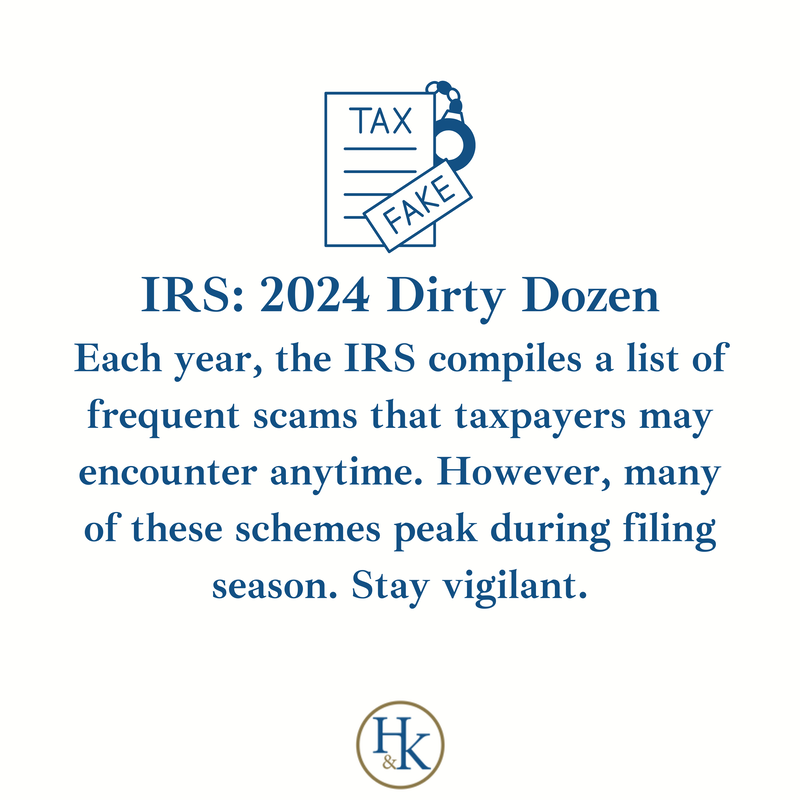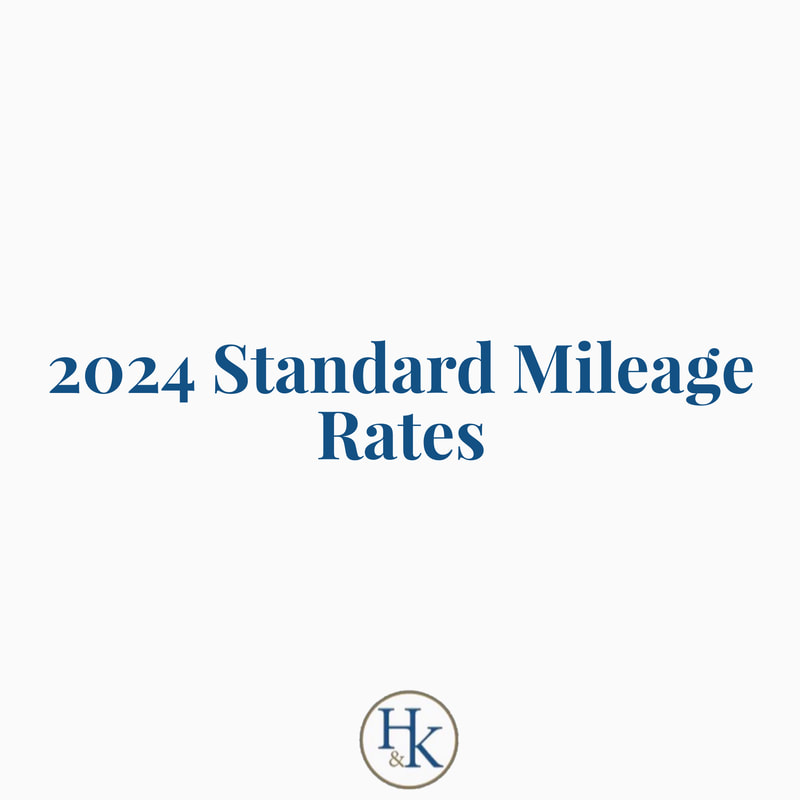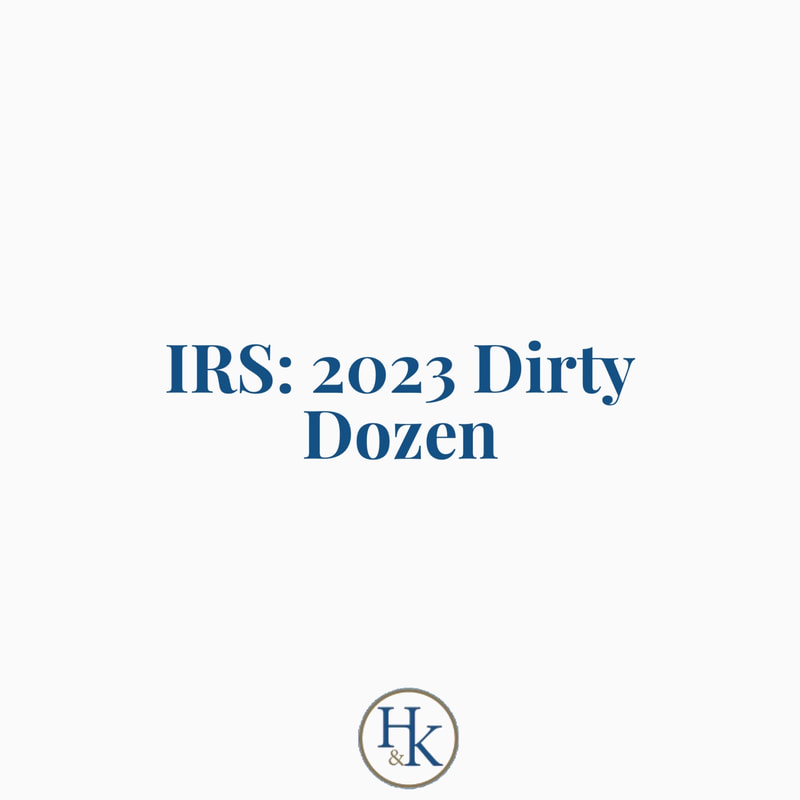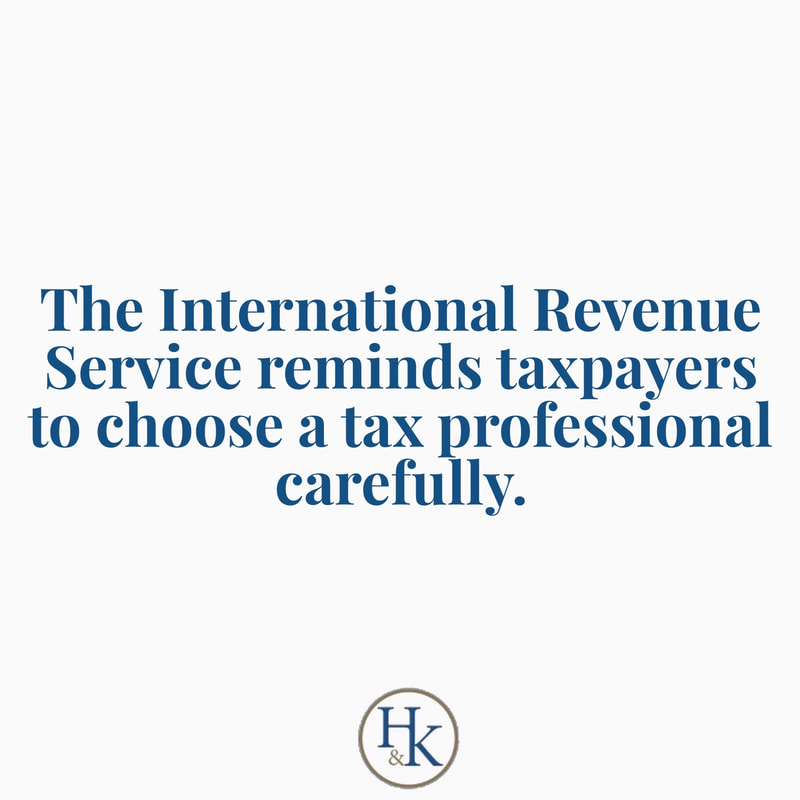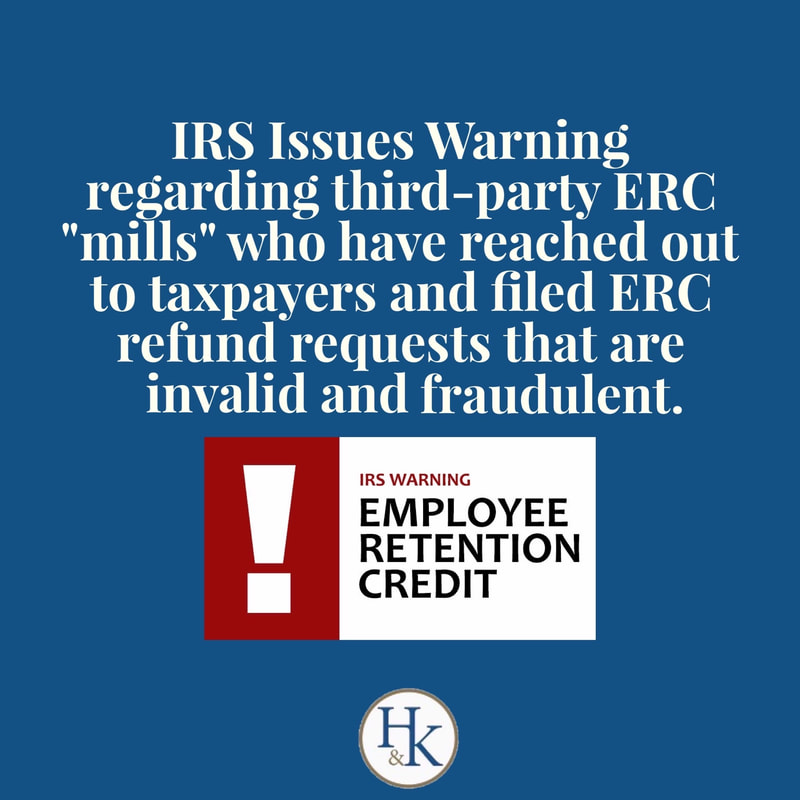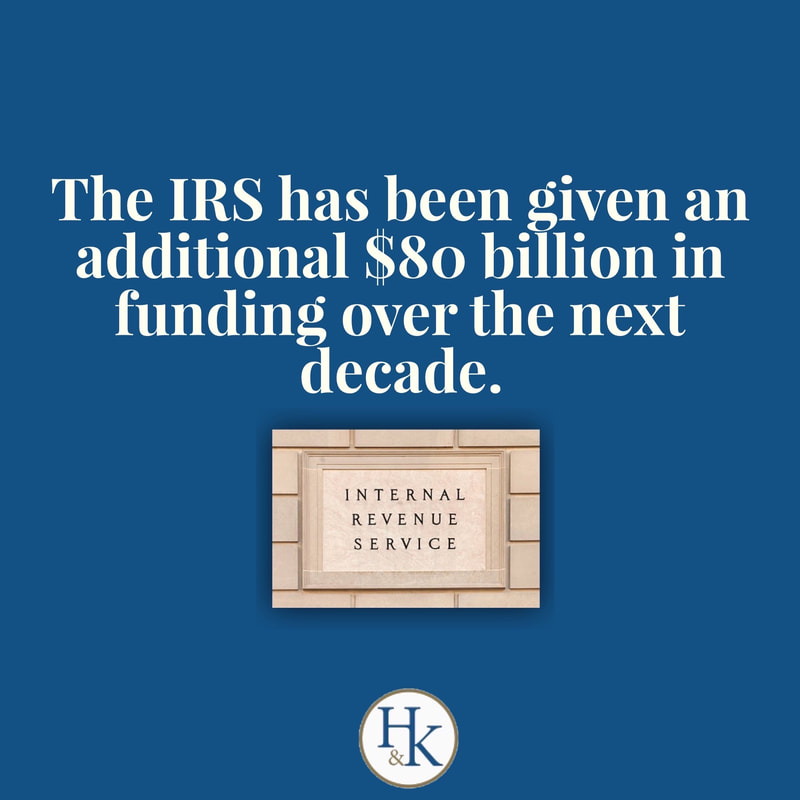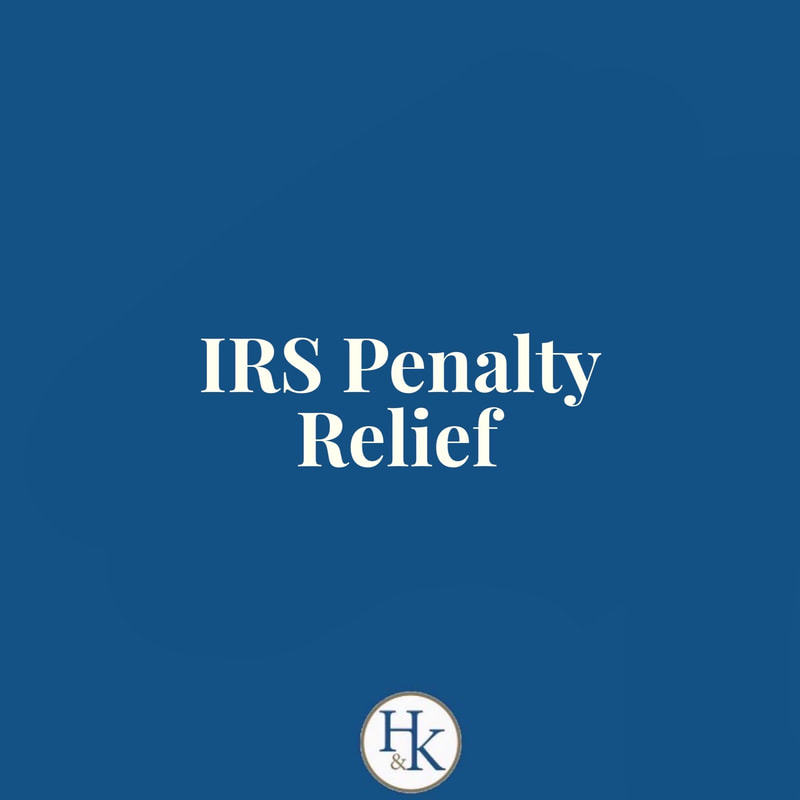July 2024 — IRS Tax Tips: Gift Card ScamFind out how to avoid becoming a victim of a gift card scam here.
|
July 2024 — IRS Surpasses $1 Billion in Collections from High-Wealth Taxpayers in Compliance With the Inflation Reduction ActThe IRS is increasing their efforts to collect taxes from the top 1,600 individuals who owe the big bucks. As part of continuous compliance with the Inflation Reduction Act, the Internal Revenue Service announced Thursday, July 11, that the agency has surpassed the $1 billion mark in collections from high-wealth taxpayers with past-due taxes.
The IRS has focused on 1,600 individuals, each earning over $1 million annually and each owing the IRS more than $250,000 in recognized tax debt. Since last fall, this IRS compliance effort has generated more than $1 billion in collections from this group. This effort, part of the Inflation Reduction Act--which provided additional funds for the IRS Collections Division--ensures all taxpayers are equally held responsible for the debt the owe to the government. Previously, much of this money was left sitting on the table... but, no more! |
April 2024 — IRS Tax Tips: Extension of Time to FileRemember, an extension to file is not an extension to pay taxes.
Taxpayers who cannot file by the upcoming deadline of April 15, 2024, should request an extension before then. However, remember that an extension to file is not an extension to pay taxes. If a taxpayer owes taxes, they should pay them before the due date to avoid potential penalties and interest on the amount owed. For more information, here is a short video provided by the IRS. |
April 2024 — IRS Dirty Dozenwww.irs.gov/newsroom/dirty-dozenAccess the IRS Dirty Dozen list here.
|
3/13/2024 — CTA and BOI found unconstitutional in AlabamaOn March 1, 2024, the Corporate Transparency Act and BOI was found unconstitutional by a Federal District Court in Alabama. This BOI reporting was set to start this year and required all LLCs, Corporations, and other entities required to be registered with their State to file a report listing all beneficial owners. There were stringent requirements and penalties for not keeping your report current. What does this mean for you? The decision only applies to Alabama; but is this a sign that the requirements will be held unconstitutional in other States? For now, hang tight and we will keep you informed of this changing area. The deadline for registering entities in existence at 1/1/24 was 12/31/24. Entities formed in 2024 were required to register by 90 calendar days after formation. Your business attorney should be able to provide you with up-to-date information.
|
3/11/2024 — Non-filing citizens are a huge problem for the US Treasury and for youNonfiling citizens are a huge problem for the US Treasury and for you. Those of us who are filing are paying for services for those who are not paying their taxes. Over the last five years, the non-filing gap was estimated to increase from 39 billion to 77 billion. The gap is actually larger because it does not include corporate non-filers. The initial target for the IRS enforcement program is around $125,000 individuals with more than $400,000 in income in 2017-2021. While most of you are safe from the initial wave, it is better to file without an IRS prompting, as getting out of penalties and interest is significantly easier if you volunteer your returns. Penalties and interest often double the amount owed. Don’t know how to start? Gather your tax data for those years and pull an IRS Transcript, which will tell you what income was reported for those years. We can help you with this issue, but not until after June 1st.
|
2024 Standard Mileage Rates
The IRS has released the optional standard mileage rates for 2024. These rates are used to determine the deductible expenses associated with operating a vehicle for business, charitable, medical or moving reasons.
Beginning on January 1st, 2024, the standard mileage rates for the use of a vehicle will be:
These rates also apply to hybrid-electric and electric vehicles. To view the official notice from the IRS, click here. |
12/6/2023 — 2023 & 2024 Saver's CreditThere is a credit available for qualifying taxpayers up to $1,000 per taxpayer ($2,000 married filing jointly). If you qualify, this credit can reduce your tax to zero but there is no refund of an excess credit. There is still time to put money into a traditional IRA or ROTH IRA for 2023 and for 2024, you can set up to contribute to your employer’s salary deferral plan and/or contribute to either IRA.
To see if you qualify, click here. If you have any questions on the plan, and are a client of our firm, please contact us and we will be happy to assist. |
11/7/2023 — 2023 WithholdingsIt’s time to check your 2023 withholdings to make sure you are on track to have your 2023 projected tax liability paid in by January 15, 2024.
For taxpayers that have mostly W-2 wages, they can use the IRS Withholding Estimator to determine if they are on track or if they might need to make an estimated tax payment. You can find the IRS Withholding Estimator here. If you are short, you can make up the missing withholding by filing a fourth quarter estimated tax payment. For 2024, use the withholding calculator to readjust your Federal withholdings so that you are scheduled to be withheld equally throughout the year. |
11/3/2023 — FinCEN & The Corporate Transparency ActWe want you to be aware that under a recent congressional act (the CTA) most businesses, including LLCs, have an upcoming registration requirement with the US Financial Crimes Enforcement Network (FinCEN).
Penalties for failing to timely file an initial report, or subsequent changes to ownership, are very steep. If you need professional guidance, we strongly encourage you to reach out as soon as possible to legal counsel with expertise in this area to assist your organization with the steps you need to take to ensure compliance with the CTA, if applicable. Because this is not a tax-matter, our firm will be unable to assist you for liability reasons. The FinCEN FAQ may be found here. |
Extra-large kicker credits (2023 Oregon)While Oregon has not yet released firm numbers, we are on track to receive an historically large kicker credit. This credit is claimed on your 2023 Oregon tax return, and it is refundable (meaning that any amount not used to pay your tax liability will be refunded).
If you were planning on paying 3rd and/or 4th quarter Oregon estimated taxes, you may be able to send in less — or nothing at all — without fear of underpayment penalties. If you would like our help in re-figuring your estimates, please contact us. If you do not adjust things, you will likely just receive a larger-than-normal refund. |
IRS: 2023 Dirty Dozen2023 IRS Dirty Dozen: The Internal Revenue Service (IRS) has issued a warning to taxpayers and tax professionals about trusting tax advice on social media. The agency is concerned that inaccurate or misleading tax information being circulated on social media platforms can lure otherwise honest taxpayers and tax professionals into compromising tax situations.
According to the IRS, social media can be a breeding ground for fraudulent form filing and bad advice, with some people providing inaccurate tax-related schemes or tactics that can lead to serious consequences. The agency has recently seen several examples of such schemes involving common tax documents like Form W-2, as well as more obscure ones like Form 8944, which is aimed at a very limited, specialized group. Both schemes encourage people to submit false, inaccurate information in hopes of getting a refund. However, taxpayers should remember that there is no secret way to fill out a form and simply get a larger refund that they aren’t entitled to. If it sounds too good to be true, it probably is. The IRS Commissioner, Danny Werfel, warns taxpayers to be incredibly wary about following advice being shared on social media, adding that there are many ways to get good tax information, including from a trusted tax professional, tax software, and the IRS website. Fraudulent form filing and bad advice on social media are part of the 2023 IRS annual Dirty Dozen campaign – a list of 12 scams and schemes that put taxpayers and the tax professional community at risk of losing money, personal information, data, and more. While the Dirty Dozen is not a legal document or a formal listing of agency enforcement priorities, it is intended to alert taxpayers and the tax professional community about various scams and schemes. Working together as the Security Summit, the IRS, state tax agencies, and the nation’s tax industry have taken numerous steps since 2015 to warn people about common scams and schemes during tax season and beyond, including identity theft schemes. The Security Summit initiative is committed to protecting taxpayers, businesses, and the tax system against fraud and identity theft. Some items on this year’s Dirty Dozen list are new, while others are re-emerging. Taxpayers and tax professionals are encouraged to stay alert and be aware of these scams and schemes to avoid falling victim to them. The IRS is aware of various filing season hashtags and social media topics leading to inaccurate and potentially fraudulent information. The central theme involves people trying to use legitimate tax forms for the wrong reason. One of the recent examples of bad advice circulating on social media that could lead to fraudulent form filing involves Form 8944, Preparer e-File Hardship Waiver Request. There are wildly inaccurate suggestions being made about this form. Posts claim that Form 8944 can be used by taxpayers to receive a refund from the IRS, even if the taxpayer has a balance due. This is false information. Form 8944 is for tax professional use only. While Form 8944 is a legitimate IRS tax form, it’s intended for a targeted group of tax return preparers who are requesting a waiver so they can file tax returns on paper instead of electronically. It is not in any way a form the average taxpayer can use to avoid tax bills. Taxpayers who intentionally file forms with false or fraudulent information can face serious consequences, including potentially civil and criminal penalties. Another scheme that is circulating on social media encourages people to use tax software to manually fill out Form W-2, Wage and Tax Statement, and include false income information. In this W-2 scheme, scam artists suggest people make up large income and withholding figures as well as the employer it’s coming from. Scam artists then instruct people to file the bogus tax return electronically in hopes of getting a substantial refund. The IRS, along with the Security Summit partners in the tax industry and the states, are actively watching for this scheme. For more information, click here. |
Social Security Scams are AbundantBecause of the nature of Social Security, they target the elderly segment of our population. Take time to talk to your parents about the ways they prey on this segment of our population. They work on instilling fear into their targets and use that fear obtain information, which allows them to gain access to sensitive information and money. The common characteristics of scams are:
1. They pretend to be from an agency or organization that you know. 2. They say there is a problem or a prize. 3. They pressure you to act immediately. 4. They tell you to pay a specific way. For more information and tools to help you avoid these scams, visit here. |
Choosing a Tax Professional CarefullyThe Internal Revenue Service reminded taxpayers to choose a tax return preparer with care, as some may cause harm through fraud, identity theft and other scams. When hiring an individual or firm to prepare a tax return, filers need to understand who they're choosing and what important questions to ask.
Not signing a return is a red flag that the paid preparer may be looking to make a quick profit by promising a big refund or charging fees based on the size of the refund. Beware of these "ghost" tax return preparers, who don't sign tax returns they prepare. Unscrupulous ghost preparers will print the return and have the taxpayer sign and mail it to the IRS. Tips for selecting a tax return preparer include:
The Choosing a Tax Professional page on IRS.gov has information about credentials and qualifications, and the IRS Directory of Federal Tax Return Preparers with Credentials and Select Qualifications can help identify many preparers by type of credential or qualification. |
Required Minimum DistributionsThe one constant with the tax law is it will never stay the same. The SECURE 2.0 tax act was enacted on December 29, 2022 and has made some changes to various rules for retirement distribution and contributions. For 2023 the Required Minimum Distribution [RMD] date, is 73. This age will gradually increase to 75 by 2033. This means that taxpayers can wait longer to begin distributions from their IRA account. In addition to extending the required beginning date, the life expectancy tables were revised.
|
IRS Issues Warning Regarding Third-Party ERC "Mills" who have reached out to taxpayers and filed ERC refund requests that are invalid and fraudulent.IRS Issues Warning regarding third-party ERC “Mills” who have reached out to taxpayers and filed ERC refund requests that are invalid and fraudulent. These companies work on a contingent basis; the more credit they claim for the business, the higher their fee. All tax practioners, who are qualified to practice before the IRS, Attorneys, Certified Public Accountants and Enrolled Agents, are prohibited from charging contingent fees. If you have had a company reach out to your business to file these claims on your behalf, we suggest you have a licensed practitioner review the refund claim for accuracy. Unlike most returns that have a three-year statute of limitations, these refund claims have a five-year statute of limitations and most likely the ERC Mills will not be around in five years. Unfortunately, the businesses that used them will not have any recourse and are liable for the ERC tax repayment, along with penalties and interest. The IRS is targeting the misuse of Covid-related tax provisions. If your ERC claim is valid and you filed your claim through a licensed tax practitioner, you do not need to worry. If you are contacted, you will just need to provide evidence that your credit was based on qualified wages. To read more about this issue, click here or call our office and we will be happy to help you.
|
IRS Additional FundingThe Internal Revenue Service has been given an additional $80 billion in funding over the next decade. These funds are supposed to go towards improving taxpayer service, modernizing their outdated technology, increasing enforcement efforts, and hiring more staff to process tax returns. Everyone has focused on the increased enforcement aspect of the additional funding. Both the Treasury Secretary and the IRS Commissioner have issued assurances that the funds won’t be used for audits of taxpayers who earn less than $400,000 per year. Currently, your odds of being audited are 0.25 percent. For the most part, the fears of being selected for audit are unfounded. There is a significant shortage of experienced tax professionals, and most tax professionals will choose not to work for the IRS. It is going to take a lot of work to hire the professionals and the average taxpayer should not worry about an audit anytime soon. The best thing you can do, is report all your income and complete your return accurately. Then, if you do get audited, it will be smooth sailing.
|
IRS Penalty Relief
The IRS is providing substantial relief for many large penalties that applied or would have applied to late 2019 and 2020 returns. If you filed your return late the penalty will automatically be removed from your account. If you have yet to file, you need to get your returns in by the end of September to be eligible! For more information, click here.
|
Where's my Refund?
Wondering where your refund is? The fastest and easiest way to check on tax refunds is by using the "Where's my Refund?" tool or by using the IRS2Go app. For more info, visit the IRS website.
The Employee Retention Credit
The Coronavirus Aid, Relief, and Economic Security Act (CARES) passed in 2020 contains a business relief provision called the Employee Retention Credit (ERC). It is a refundable payroll tax credit for "qualified wages" paid to retained full-time employees to help businesses who suffered during the Coronavirus pandemic recover.
We have filed for over $800,000 worth of credits for our clients. Many tax return preparers and professionals are not discussing this credit with their clients, because they either do not understand the credit or do not have the time. If your tax professional is not comfortable with the ERC, please contact us. We can help you determine if you qualify and if you do, we can help amend your 941s and ensure you get the credit you deserve.
- The Employee Retention Credit (ERC) provides a refundable credit of up to $5,000 for each full-time equivalent employee you retained from March 13, 2020, to Dec. 31, 2020, and up to $14,000 for each retained employee from Jan. 1, 2021, to June 30, 2021.
- As an employer, you qualify if you were ordered to fully or partially shut down or if your gross receipts fell below 50% for the same quarter in 2019 (2020 ERC) and below 80% for the 2021 ERC.
- If you were not in business in 2019, then you can use the corresponding quarters from 2020.
- The new law, retroactive to March 27, 2020, now allows employers that received Paycheck Protection Program (PPP) loans to claim the ERC for qualified wages not treated as payroll costs in obtaining forgiveness of the PPP loan.
We have filed for over $800,000 worth of credits for our clients. Many tax return preparers and professionals are not discussing this credit with their clients, because they either do not understand the credit or do not have the time. If your tax professional is not comfortable with the ERC, please contact us. We can help you determine if you qualify and if you do, we can help amend your 941s and ensure you get the credit you deserve.




